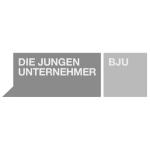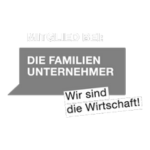Can you study managing companies and leading people in theory or does it require a lot of practice and experience? I am now faced with this question a few weeks after completing my degree in International Business Management. And I can answer this question straight away with: both. The course, including the two integrated semesters abroad in New York and Shanghai, gave me incredible theoretical knowledge and also gave me interesting insights into international companies and their corporate culture. Parallel to my studies, however, I also always worked in our family business, here at ATES, and was fortunately able to consistently compare theory and practice. The theory taught me to look at my work and the company more holistically. As a part of the economy and society. Practice has also shown me that a company is only actually value-creating, economically and socially relevant if every single person in the company also demonstrates the collective team spirit in their work. The mission and the promise of performance to the customer are particularly important for long-term success. Success is now almost always a team effort. I already had this experience during my studies in various joint projects such as homework, group work, etc. But how can team spirit be maintained in companies in the long term when, in many companies, three or four generations now meet and are expected to successfully shape the future together?
How close is the exchange between the generations in your company? A brief inventory
Do younger and older employees eat lunch together?
Do young and old also work together digitally?
Are there official formats in which the older ones learn from the younger ones and vice versa?
Young talents and oneness as innovation boosters for the company
The tension that arises when different age groups work together within a company has increased dramatically in recent years and will continue to increase in the future. This means that requirements for departments and business units should be formulated in such a way that they develop the appropriate mindset across generations. New behaviors and structures must be developed, especially when it comes to achieving high performance.
When I look at our practice in this way, we live exactly that. We have several generations in our company who challenge and encourage each other every day. This means that we grow closer together not only as individuals, but also as a whole team. Experience-based knowledge is combined with open, new thinking and other perspectives – we call this Young Spirit. If you are now wondering how the concept of Oneness creates spirit in our company, then it can be explained like this: In order for Young Spirit to emerge, which runs through the entire company, everyone must treat each other with care and be willing to share not only their knowledge, but everything that makes them who they are as people, profitably for the common goal (“sharing is caring” is the motto). As a company, we represent a unit, “Oneness”, and avoid any kind of separation that would only create distance; distance from the company, from the team members and from our own performance by not proactively contributing existing resources and potential. Of course, every person within the company has their role and task, but it is more about the interaction that takes place with each other and the genuine interest in the existing diversity. This view of oneness, of being one with everything, also eliminates the boundaries between generations, hierarchical levels or other performance and communication blockages that could separate us as team members and thus prevent or limit the achievement of major goals. Holy Hour: Collaboration of the future – a tried and tested model of Young Spirit communication
Of course, we have a fully-fledged philosophy behind this attitude, but even very simple formats can help to establish a Young Spirit culture throughout the company. We use targeted online formats (I’m just saying: Corona ????) that promote communication and interaction within the entire team. One of them is our Holy Hour. “Holy” is not just the name, but also the date on which we all come together regularly without disruption. It consists of four fixed building blocks that promote our focus on results, our feedback and error culture and mutual appreciation and support. These four questions will give you a first impression of the Holy Hour:
Results from last week. What have I achieved? What are the goals for this week? Do I need help from team members? What feedback can I give other team members?
I wouldn’t have thought it possible, but when some customers found out about our Holy Hour, they used the format themselves in their companies to strengthen their team performance and build their shared spirit. This inspired me to present the Holy Hour here as a model for strengthening the Young Spirit culture and to write about it. So I’d like to make you an offer: If you want more information about setting up the “Holy Hour” in your own company, please write to me on LinkedIn and I’ll send you our Holy Hour handout.















